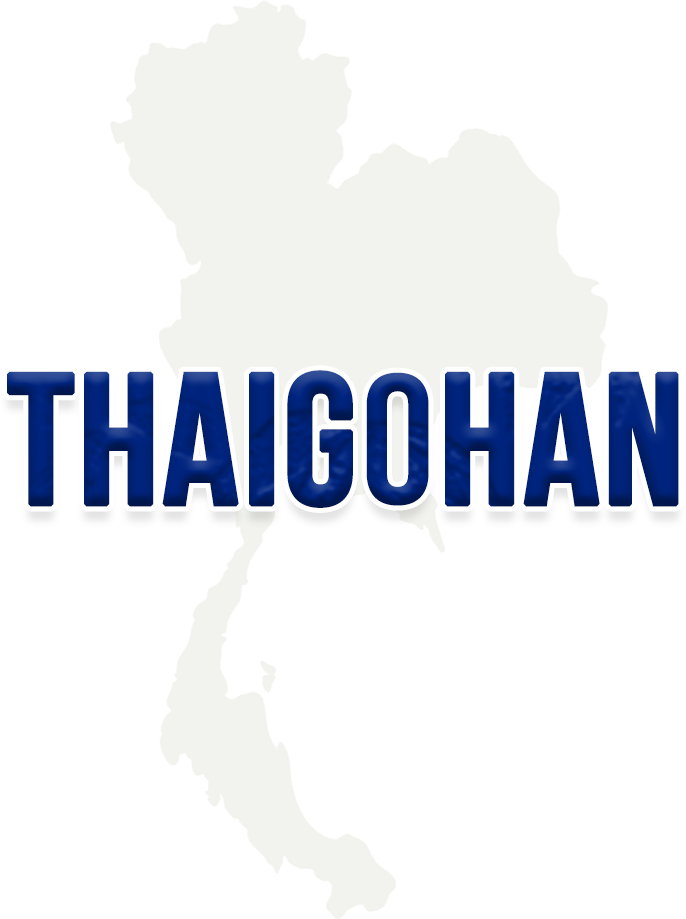Complete Guide to Thai Visas: Types and Application Methods by Purpose

Thailand is a popular destination for various purposes, including tourism, business, long-term stays, and retirement. However, different visas are required depending on the purpose, and understanding each type and application method is crucial. This article explains the main types of Thai visas, their features, and how to apply for each purpose. Whether you’re planning a short stay or considering a long-term move to Thailand, this guide provides clear information to help you choose the best option.
目次
- 1. Tourist Visa: For Short-Term Visitors
- 2. Business Visa (Non-Immigrant B Visa): For Business Activities
- 3. Retirement Visa: For Those Seeking Long-Term Stays
- 4. Student Visa (Non-Immigrant ED Visa): For Educational Purposes
- 5. Family Visa (Non-Immigrant O Visa): For Living with Thai Family Members
- 6. Digital Nomad Visa: For Remote Workers and Freelancers
- 7. Visa Extensions and Renewals: For Long-Term Stays
- Conclusion
1. Tourist Visa: For Short-Term Visitors
Thailand’s tourist visa is issued for short-term travelers. A “visa exemption” is available, allowing citizens from certain countries, such as Japan, to stay for 15 to 30 days without a visa. For extended stays, you can apply for a tourist visa, with options for single or multiple entries depending on the intended length of stay.
Tourist visas can be obtained from Thai embassies or consulates, or applied for online. Documents required include a copy of your passport, an itinerary, and proof of accommodation.
2. Business Visa (Non-Immigrant B Visa): For Business Activities
A business visa is suitable for those who intend to work or conduct business in Thailand. This visa is necessary for those employed by a local company or starting their own business. It’s valid for up to a year and is ideal for long-term business activities.
Required documents generally include an employment certificate, an invitation letter, and support documents from the company. After obtaining a business visa, a work permit application is also required.
3. Retirement Visa: For Those Seeking Long-Term Stays
A retirement visa is available to those over 50 who wish to live in Thailand long-term. It is popular with retirees seeking a relaxed life in Thailand. Requirements include proof of income or bank balance, converted into Thai baht.
Documents needed include your passport, proof of pension or bank balance, and a health check certificate. The retirement visa allows a maximum stay of one year and must be renewed annually.
4. Student Visa (Non-Immigrant ED Visa): For Educational Purposes
The student visa allows you to stay in Thailand for educational purposes, such as attending a language school or university. This visa supports a wide range of educational activities, from language studies to postgraduate programs, and permits stays of up to one year.
Admission to a Thai language school or university is required, and application documents include an admission certificate or enrollment confirmation from the school. As long as you remain enrolled, student visas can be extended.
5. Family Visa (Non-Immigrant O Visa): For Living with Thai Family Members
The family visa is issued to those intending to live with Thai family members, such as a Thai spouse. This visa is commonly used by foreigners married to Thais or those with Thai family members. Required documents include a marriage certificate and ID proof of the Thai spouse.
The family visa is relatively easy to obtain for foreigners with Thai spouses, allowing them to stay in Thailand for up to a year. It is ideal for long-term stays with family.
6. Digital Nomad Visa: For Remote Workers and Freelancers
Thailand recently introduced a special visa for digital nomads and remote workers. A digital nomad visa is designed for freelancers and remote workers who want to stay long-term, especially in tourist-friendly locations. This visa is available to those who earn their main income through online work.
Although details are still being finalized, this visa is expected to become more convenient, offering attractive options for those seeking flexible work arrangements in Thailand.
7. Visa Extensions and Renewals: For Long-Term Stays
If you plan to stay in Thailand long-term, it’s essential to know how to extend or renew your visa. Visa extensions are usually handled at the local immigration office in the area you’re staying in. For example, a tourist visa can be extended for an additional 30 days, and student and retirement visas need regular renewal.
Documents typically required for visa extension include your passport, proof of residence, and extension fees. As procedures vary by region and timing, it’s recommended to check for the latest information at the local immigration office.
Conclusion
Thailand offers various types of visas to meet different purposes, from tourism to business, retirement, education, and living with family. Each visa type has specific application methods and requirements, so it’s crucial to choose the one that best suits your needs. For long-term residents, understanding the process of visa extension and renewal can help ensure a smooth experience while living in Thailand.
As Thailand’s visa system continues to evolve, it is becoming an increasingly attractive option for those considering a long-term stay in this vibrant country.
(Photo by Unsplash.com)




